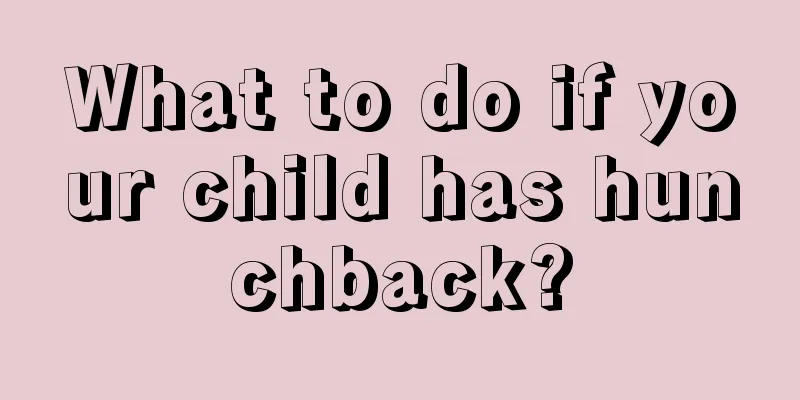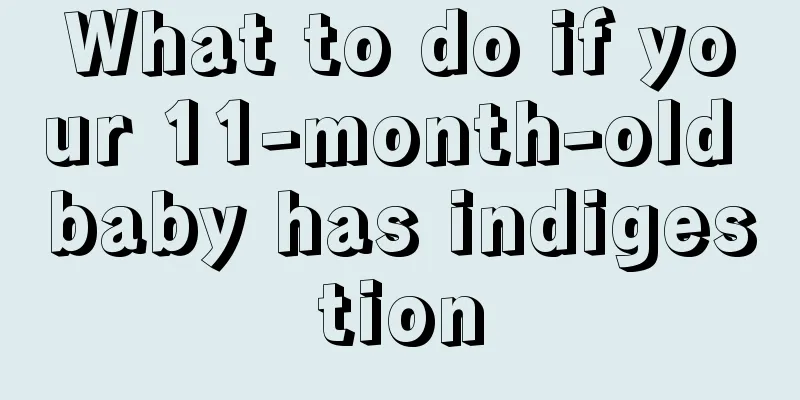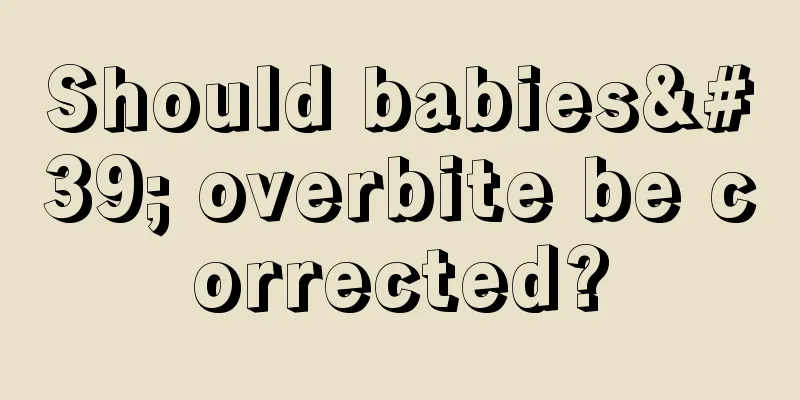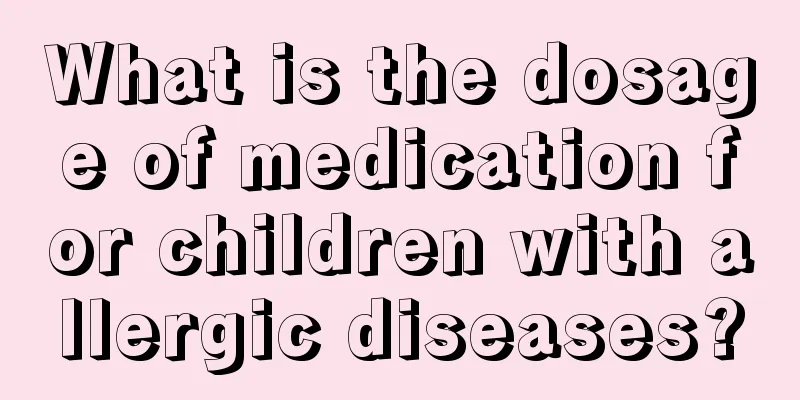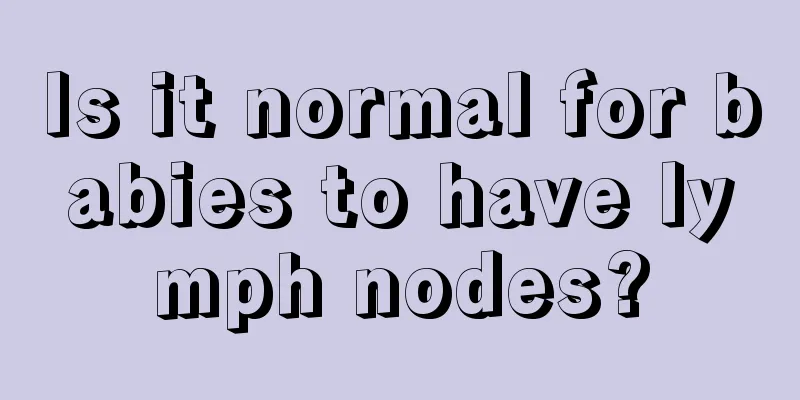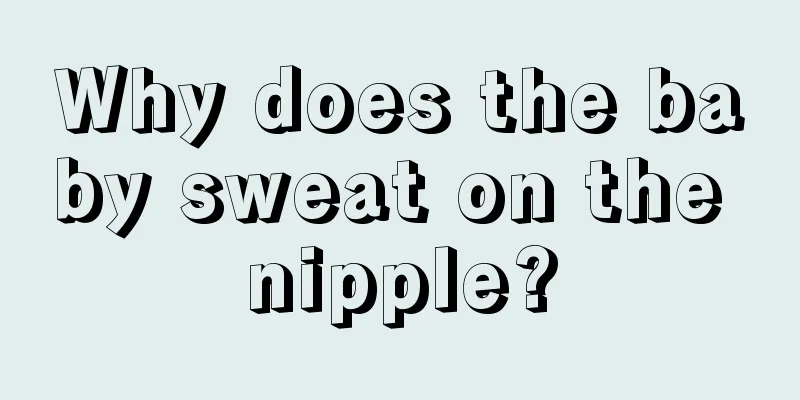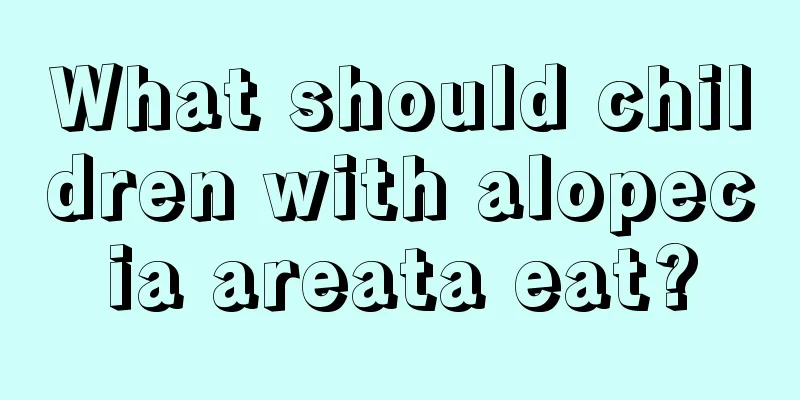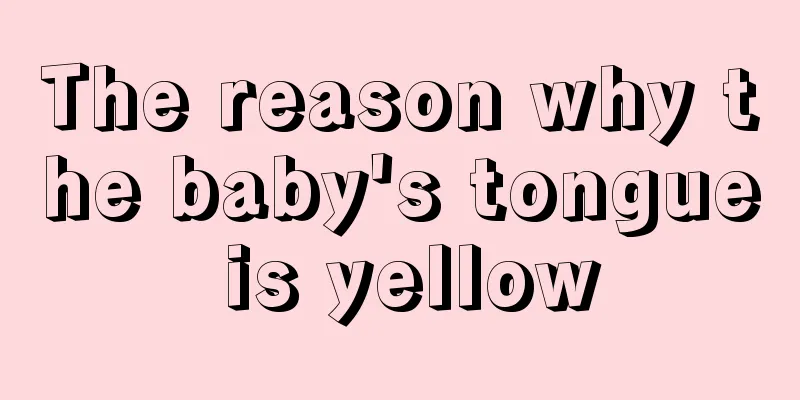Did the child finish taking anti-inflammatory medicine?
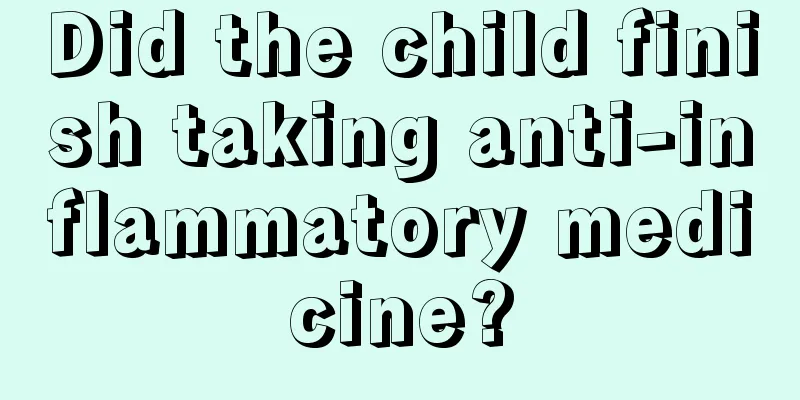
|
In life, many children are particularly prone to illness because their physical fitness is relatively poor and their immunity is relatively low, so they are particularly prone to various inflammations. The most likely thing for children to get sick is a fever. When treating their children, many parents will not only give their children some antipyretics, but also some anti-inflammatory drugs. So, can young children take anti-inflammatory drugs? Fever in children is the most common symptom in children and it is also what parents worry about the most. Generally, when a baby has a fever, there must be inflammation. Although fever is not a good thing, it is not necessarily a bad thing! This is precisely the body's protective response. Children with fever should make sure to drink plenty of water. If the child's temperature is less than 38.5℃, please try to use physical cooling methods: warm water bath, ice compress on the head or use a cooling patch. Physical cooling and drug cooling methods Because high fever can cause children to have headaches, body pain, fatigue, poor appetite, etc., in order to alleviate the discomfort symptoms, the child can be given antipyretics. There are two methods of reducing fever: physical cooling and drug cooling. Physical cooling Physical cooling methods have a slower cooling speed, but have no side effects on the child's body, so it can be said to be a safer cooling method. Method 1: Use warm water (your hand should not feel too hot or too cold in the water, the temperature is about 38-41 degrees) to wet a towel, wring it slightly dry, and then wipe the neck, arms, chest, back, thighs and other parts. Wipe the large blood vessels in the elbows, armpits and neck a few more times until a slight redness appears. In this way, the evaporation of water can take away a large amount of heat and play a cooling role. Method 2: Place an ice pack or cold towel on the child's forehead to reduce the brain's oxygen consumption, lower body temperature and protect the brain. There are many drugs for reducing fever. In clinical practice, antipyretics are usually given only when the child's temperature reaches 38.5 degrees. Commonly used antipyretic drugs include Tylenol, Patil, etc. No matter what the antipyretic drugs are called, most of them are synthesized from aspirin, caffeine, phenacetin, etc. Therefore, antipyretics have significant side effects, such as irritating the gastric mucosa, destroying appetite, causing anemia, damaging the liver and kidneys, and some can even cause allergic reactions and rashes. Therefore, antipyretic drugs should be used with caution. If the body temperature continues to rise after using them for a day, seek medical attention immediately. Do not use too large a dose at one time. The dose should be strictly based on the child's weight or age. |
<<: Anti-inflammatory medicine for children’s sprained feet?
>>: Children's sinusitis anti-inflammatory medicine for one month
Recommend
What should I do if my one and a half year old has bronchitis and has not recovered after taking medicine for a week?
Babies of one and a half years old have relativel...
Will a scratch on a child's face leave a scar?
No matter it is a boy or a girl, if there is a ch...
What to do if children have recurrent low-grade fever
Generally speaking, children have relatively poor...
The relationship between children's "three measurements" and physical health
Of course, parents don’t want their children to g...
What should we pay attention to when children have lower respiratory tract infections?
Children's body resistance to disease is rela...
What should I do if my child has gastrointestinal dysfunction?
When a baby is just born, the digestive system is...
How to treat rectal polyp surgery in children?
If a child suffers from rectal polyps, the main s...
Children drink honey water on an empty stomach in the morning
Many parents like to give their children honey wa...
What should I do if my baby is zinc deficient for more than three months?
Zinc is one of the essential trace elements in th...
Children often complain of stomachache
Many children often complain of stomachaches. Thi...
Young children have leucorrhea-like discharge. Let's find out the reasons behind it.
It is very common for adult women to have vaginal...
What should I do if my child has recurring fever caused by inflammation?
Inflammation in the body is related to many facto...
Children's allergic cough medication, these things to remember
Currently, the best treatment for children's ...
1 and a half year old baby walking unsteadily
Every change in the baby after birth is watched b...
What to eat to enhance the baby's resistance
Once people get married and have children, they w...
